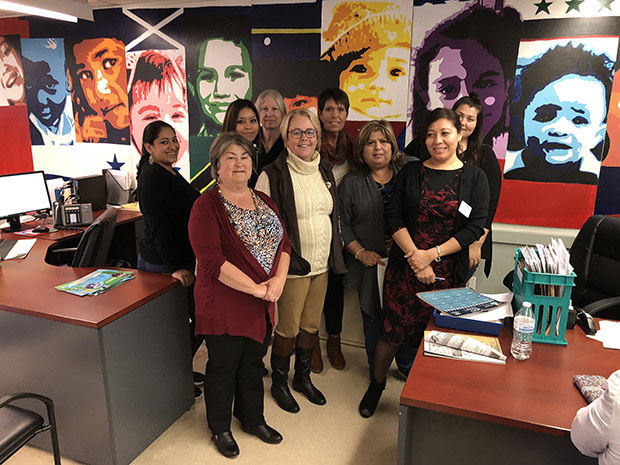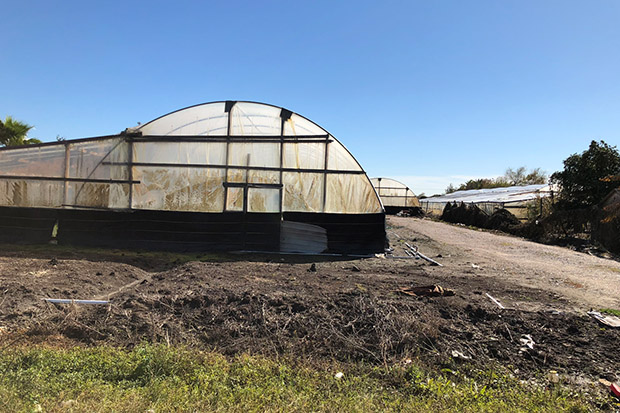During my first visit to Houston, shortly after Hurricane Harvey struck, I saw the flooding and the destroyed furniture piled along the streets in so many neighborhoods. Many organizations were providing much-needed immediate assistance.
Four months after the storm, I returned to Houston to visit with ECHOS and the leaders of the Cambodian Village in Rosharon. I wanted to know how needs of some of Houston’s most marginalized populations have changed in the time since Hurricane Harvey. Not surprisingly, this population still suffers significantly and still has to deal with challenges like unemployment, lost wages, lost housing, vehicles and transportation issues. When I visited in December, the sudden onset of very cold weather and the upcoming Christmas Holiday added extra pressure.
In 2001, in response to the dramatic change in southwest Houston’s demographics the parishioners of the Episcopal Church of the Epiphany established Epiphany Community Health Outreach Services. The average monthly family income of ECHOS clients is $1,126. ECHOS helps families access health care services and benefits coverage, educational programs, such as GED preparation and a food pantry. The staff at ECHOS is still working with over 400 families by Hurricane Harvey. Assistance consists of providing utility help, deposits for new rentals, metro cards and now winter clothing and blankets. They were able to hire a new caseworker and to offer full time employment to some of their caseworkers due to financial assistance that CWS provided. I observed some client interviews and had the opportunity to see the great online database they developed and how their vetting process works. All information received from a client regarding damages and needs due to the hurricane is verified by contacts with utility companies, landlords or employers. The focus is to not duplicate services and of course to provide assistance to the most vulnerable.
My final visit took me to a Cambodian community in the Rosharon area. This community is very much isolated from the outside area. It has one road in and out. The whole village was flooded, and greenhouses being used to grow winter spinach – the main source of income in the community – were 75 percent destroyed. I saw multiple houses being repaired and some being gutted due to mold and mildew. The community’s immediate concern is to repair the greenhouses, since the plants cannot grow or survive without shelter from the cold. CWS supported the purchase of tarp-like material to protect the plants.
After four months, the needs of these especially vulnerable communities have shifted to repairing and rebuilding while still trying to make ends meet despite the extra cost from the hurricane. Living paycheck to paycheck or being unemployed without any governmental assistance requires personal resources, which are none existing for the most marginalized. CWS will follow up with these agencies to see how the need of clients may shift in the next few months. Our assistance and support reaches beyond the immediate material goods. We’re looking at providing preparedness training to staff and clients, so to be better prepared for the “next big one.”
It has been months since the storm passed, but for families who lost their belongings, source of income, housing, cars and sense of a certain security, the effects are still raging. Despite all the challenges and tremendous daily insecurities, the clients at ECHOS are smiling, laughing and waiting patiently for the assistance provided there. The Cambodian Village community is looking forward to their new harvest and are determined to rebuild each and every home. Having witnessed exactly this determination many times around the nation by people of different cultures and origins is always uplifting and amazing to me. I do believe that the strength that brought them here to start a new life is the same determination that is displayed now by rebuilding after Harvey.
Susanne Gilmore is a CWS Emergency Response Specialist.


